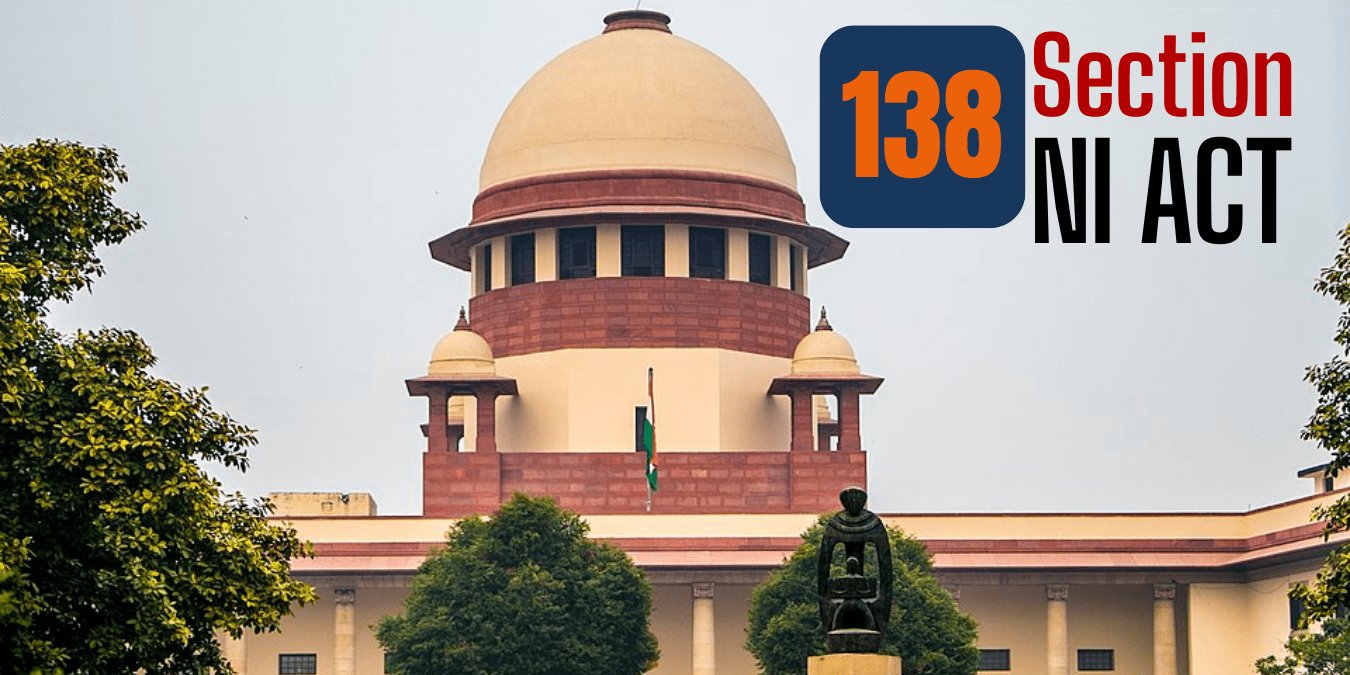
How India’s Courts Now Freeze Assets in Cheque Bounce Cases — The New 2025 Update
The shocking 2025 Section 138 amendment rewriting India’s cheque bounce laws! Learn why e-filing, 90-day case closures, and stricter penalties will disrupt financial disputes forever. What hidden changes could affect your business or credit score? Get the full story and protect yourself fast before it’s too late.
The 2025 amendment to Section 138 of the Negotiable Instruments Act in India introduces a sweeping set of changes designed to revolutionize the cheque bounce legal process, speeding up resolutions and strengthening penalties for offenders. These changes come at a crucial time when cheque bounce cases continue to clog Indian courts—Delhi alone having over 5.55 lakh pending cases—causing severe delays and hardship for genuine creditors and businesses.
Mandatory E-Filing for Quick Complaints
One of the most impactful reforms is the mandatory e-filing of cheque bounce complaints through dedicated court portals. This digital integration aims to eliminate traditional delays caused by manual submissions and physical paperwork, allowing cases to be filed smoothly and tracked transparently online. This reform reflects India’s broader shift towards digital governance and is expected to streamline the legal workflow significantly.
Fixed 90-Day Timeline for Case Disposal
Prior to this amendment, cheque bounce cases often dragged on for 12 to 18 months or longer, putting tremendous strain on victims awaiting justice. The new law mandates magistrates resolve these cases within 90 days of filing. This shockingly fast timeline sets India apart globally and is aimed at providing quick relief to payees, reducing court backlogs and discouraging habitual defaulters from gaming the system through legal delays.
Stricter Penalties for Repeat Offenders
To deter repeated cheque bounces, the amendment introduces significantly stiffer penalties for habitual offenders. Repeat cheque bouncers face not only higher fines—potentially up to double the cheque amount—but also non-bailable warrants and jail terms that may extend up to two years, doubling the previous maximum sentence. This move aggressively cracks down on cheque misuse and helps protect businesses and individuals from recurring financial fraud.
Online Legal Notice Service Enhances Speed and Reliability
The amendment allows payees to serve legal notices to cheque defaulters via email or SMS, ensuring faster and more reliable communication compared to postal services. This online notice service cuts down the timeframe for initiating legal action and reduces false claims of non-receipt. The Supreme Court guidelines now allow additional digital modes like WhatsApp for summons service, making the entire notice process more transparent and accountable.
Interim Relief Rights for Payees
For the first time, courts are empowered to grant interim reliefs in cheque bounce cases, such as freezing the defaulter’s assets or mandating partial repayment during trial. This provision offers a critical lifeline to genuine creditors who might otherwise have to wait for years for the final judgment. Interim relief mechanisms increase creditor confidence and uphold the principle of timely justice in India’s commercial ecosystem.
Streamlined Digital Complaint and Notice System
By integrating e-filing and online serving of notices within a unified digital platform, the amendment greatly reduces procedural hurdles and court workload. These technology-driven reforms align with 2025 RBI policies promoting faster financial dispute resolution through fintech innovations like UPI-enabled payments. The courts are also deploying QR code and UPI payment links for instant cheque amount settlement during hearings, further accelerating case closures.
Why These Shocking Changes Matter for Indian Consumers and Businesses
Cheque dishonor has long been a major source of financial distress in India, especially for MSMEs and individual creditors who rely on timely payments to sustain operations. The 2025 amendment tackles the root causes of delays and misuse by transforming the legal framework into a smart, fast, and tech-enabled system.
The faster resolution timeline offers relief amid rising cheque bounce cases—hindering cash flow has contributed to countless SME closures. Stricter penalties deter unscrupulous behavior, reinforcing a culture of financial responsibility.
Digital notice delivery, interim asset freezes, and online complaint management empower creditors with quick tools that did not exist earlier, ensuring they are not left helpless.
Moreover, the integration of cheque bounce data with credit rating systems like CIBIL adds a significant incentive for drawer compliance, as repeated bounce cases now harm credit ratings, rising in tandem with India’s tightening financial risk management landscape.
Smart Tips for Indian Businesses and Creditors
- Always File Complaints Electronically: Use the mandated e-filing portals to ensure quick registration and tracking of your Section 138 violations.
- Serve Notices Digitally: Utilize email and SMS channels for faster legal notice delivery and reduced chance of disputes over service.
- Request Interim Relief When Possible: Ask the court early to freeze assets to secure repayment during trial.
- Monitor Credit Scores: Keep a close eye on cheque bounce repercussions affecting CIBIL to mitigate lending risks.
- Leverage Instant Payment Options: Courts now provide QR codes and UPI links to allow quick closure of disputes through immediate payments.
- Be Wary of Repeat Offenders: Businesses should incorporate background checks against RBI’s centralized bounced cheque database to avoid habitual defaulters.
Comparison Snapshot: Old vs New Section 138 Rules (2025 Amendment)
| Aspect | Pre-2025 Law | 2025 Amendment Highlights |
| Complaint Filing | Manual court submission | Mandatory e-filing via digital portals |
| Case Disposal Timeline | 12-18 months or more | Fixed 90-day resolution deadline |
| Penalties | Up to 1 year imprisonment | Up to 2 years + higher fines, non-bailable warrants for repeat offenders |
| Notice Serving | Physical/postal notices | Online delivery via email, SMS, WhatsApp |
| Interim Relief | Rarely available | Courts empowered to grant asset freeze, repayment mandates |
| Payment Settlement | Manual processes | UPI/QR code payment link during hearings |
India's Future Financial Move: Are Digital Payments the Ultimate Cheque Bounce Cure?
The 2025 amendment boldly accelerates cheque bounce justice, but its success hinges on wider digital adoption. The Reserve Bank of India’s ongoing push for instant payments via UPI, e-mandates, and automated reconciliation may ultimately render cheque bounce cases obsolete.
Imagine a future where financial disputes are resolved in days, not months, thanks to digital invoicing, real-time alerts, and easy remittance options. As India embraces cutting-edge fintech tools and judicial digitization, will the cheque—once a staple of trade—become a relic?
Stay tuned for the next wave of banking innovation that could radically reshape credit risk management and dispute resolution in India’s dynamic financial ecosystem.
Quick Takeaways: What Every Indian Must Know About the 2025 Section 138 Amendment
- All cheque bounce complaints must be filed electronically—no more manual paperwork delays.
- Courts are mandated to dispose of cases within 90 days, a drastic acceleration.
- Repeat defaulters face stricter penalties, including jail terms and higher fines.
- Legal notices to defaulters can now be served online via email or SMS.
- Courts can grant interim relief like asset freezes to protect genuine creditors.
- Digital complaint and notice systems reduce burdens on courts and speed up justice.
- RBI’s centralized bounced cheque database now integrates with credit scoring.
- Instant UPI payment options in courts facilitate quick settlement of disputes.
This amendment is a game-changer for Indian consumers, businesses, and legal practitioners—ushering in a smarter, faster, and tougher cheque bounce regime for 2025 and beyond.
Final Thought
As India rapidly modernizes its financial and legal landscape, the 2025 amendment to Section 138 of the Negotiable Instruments Act signals a bold leap into a future where cheque dishonour cases no longer stall justice for months or years. The fusion of smart digital tools with stricter laws promises a system where fast, fair resolution safeguards business credibility and consumer trust alike. Yet, the real game-changer may lie just ahead—increasing adoption of instant digital payments and fintech innovations that could one day render cheque bounce cases almost obsolete. For Indian businesses and consumers, embracing these reforms and emerging financial technologies will be key to staying ahead in the fast-evolving credit ecosystem, unlocking a future where financial disputes become swift, seamless, and smartly managed. Watch this space, as the next wave of banking innovation approaches, ready to transform credit risk forever.




























